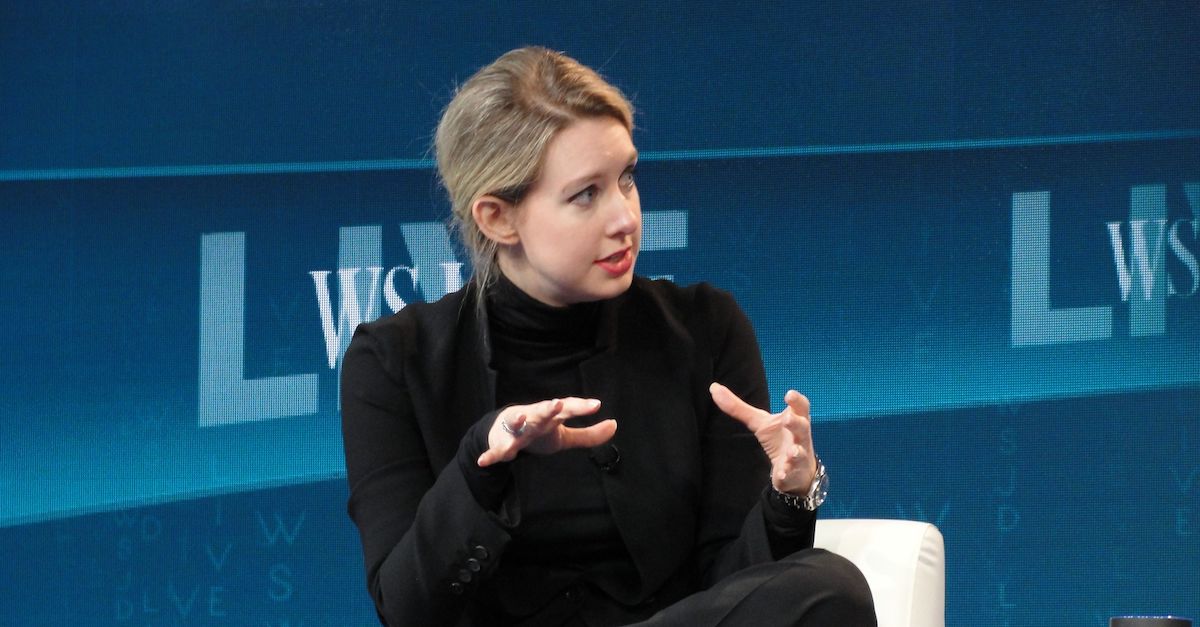
After over 20 years as a trial attorney, I know that we all have our juries and we all have to advocate. Advocating is simply helping people choose what you want them to choose, and those people are your jury. Elizabeth Holmes spent 15 years advocating for her company, Theranos, and she was able to persuade her jury of investors to give her over $700 million dollars. But now, she has to convince a very different jury to give her the biggest win: her freedom.
Jury selection in the federal fraud and conspiracy case against Holmes begins today, Tuesday, Aug. 31. She faces ten counts of fraud, two counts of conspiracy to commit wire fraud and up to 20 years in prison. Holmes’ future (and that of her baby, born in July) depends on her ability to convince this jury that she is innocent of these claims. Will she be able to convince this jury the way she convinced her investors? That depends on many things, and begins in large part, with the jury she must convince.
Every member of every jury I’ve advocated before comes to the trial with their own perspective. As a trial attorney, it’s my job to try to choose jurors who share the same perspective as my client. In my cases, it was impossible. I defend doctors in medical malpractice cases, and I’ve never had a doctor as a juror. However, all of the jurors in all of my cases were patients. They saw the world, and the case, through a patient’s perspective. And it was my job to change that perspective.
For the attorneys in this case, each side wants jurors who see the world through a different perspective. For prosecutors, that would be the perspective of the patients who were harmed by Holmes’ lies. We know there are people who used Theranos’ testing and discovered they had HIV, cancer or had suffered a miscarriage. And we know they later found out that testing, and the diagnosis, was wrong. Prosecutors plan to call some of them as witnesses, and will want jurors who see things through those patients’ perspectives.
Holmes’ attorneys want this jury to see things through her perspective. And just this weekend, that perspective became a little more clear. As Law&Crime has reported, documents were released this weekend showing that Holmes plans to claim that she was abused and manipulated by her boyfriend and the President of Theranos, Ramesh “Sunny” Balwani. That means they’re looking for jurors who can see this case from the perspective of a victim (or potential victim) or such abuse. That also means they may want more women on the jury. Studies show that in murder trials where the defense was “battered woman syndrome,” female jurors view that defense more positively than male jurors do. Since Holmes will want to portray herself as a “battered woman,” they may lean towards female jurors.
Attorneys will also likely consider the fact that Balwani, the alleged abuser, is Pakistani. All jurors, all humans, have Implicit Bias against all types of people. (If you think you don’t, you are likely wrong: try taking Harvard’s Implicit Association Test.). There are bound to be some potential jurors with an implicit bias against Middle Eastern men. That is a perspective that Holmes’ attorneys will also want to consider.
It’s worth noting that this jury will likely be very different from Holmes’ “jury” of investors. When you look at those who invested the most into Theranos, they are almost all white, wealthy men (with Betsy DeVos as an exception) or families. They were all rich, educated and privileged. This jury is much more likely to look, sound and act like a cross section of America. Holmes’ job will be to find a way to advocate to them just as effectively as she advocated to her investors.
I often say, “Facts tell. Stories sell. Advocates win.” In this case, both sides have their facts, the evidence they’ll use to make their case. They both have the stories they will tell about what happened here, and why. But ultimately it will be the better advocates that win. Every lawyer and every witness will have to use the tools of an advocate to change the jurors’ choices. In my book, “Advocate to Win,” I share these tools and they include words, perspective, evidence, and questions. They also include presentation (body language, tone of voice and facial expression) and credibility. Holmes was especially adept at using those tools with her jury of investors. Whether Holmes will be as good in the courtroom setting is the question of this trial.
It all begins this week, with jury selection. When you advocate, you help people choose what you want them to choose. Choosing those people, and understanding how they see the world, is the first key to a win.
Heather Hansen is a trial attorney and the author of “The Elegant Warrior” and “Advocate to Win.” She anchored for years on the Law&Crime Network and still appears as host on occasion.
[Image via GLENN CHAPMAN/AFP via Getty Images]
This is an opinion piece. The views expressed in this article are those of just the author.